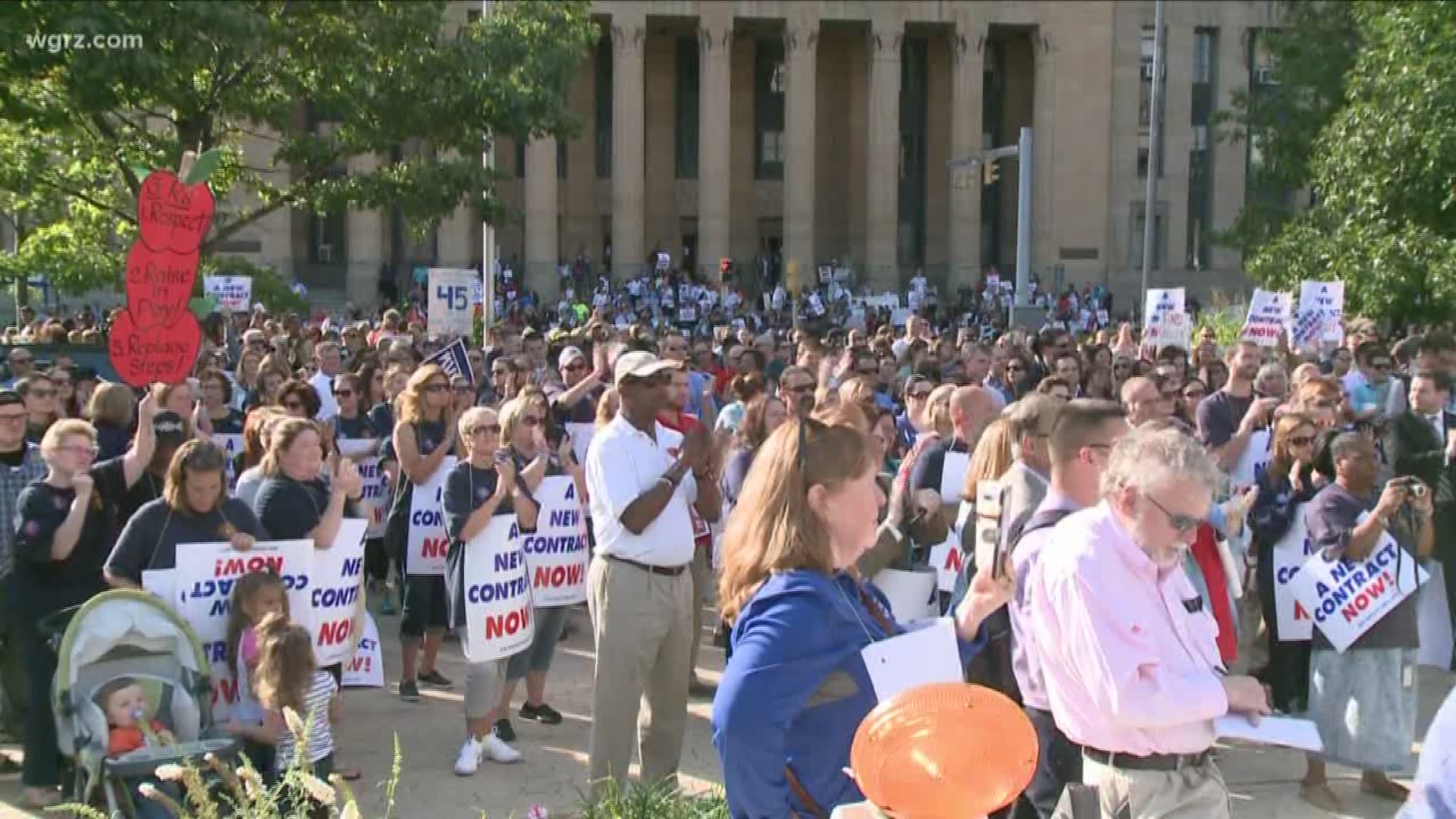ALBANY — The Supreme Court ruling Wednesday that unions cannot collect fees from non-members could have wide implications across New York, which has the nation’s most heavily unionized public sector.
Unions in New York derided the groundbreaking decision by the closely dived Supreme Court as it may weaken their membership.
"I think it's absolute bull roar," said Florence "Flo" Tripi, Region 6 President of the Civil Service Employees Association, who believes it's not fair to allow non-members to skip on dues, while enjoying the same benefits as their dues paying co-workers.
"They're still entitled to all the benefits, they're still entitled to representation, and they're still entitled to everything that somebody that is paying dues is getting," Tripi told 2 On Your Side.
"I call those kind of people freeloaders," Philip Rumore, President of the Buffalo Teachers Federation, said.
Neither Rumore nor Tripi were surprised with the decision, given the current makeup of the court and its more conservative leanings.
"People that are backing this are billionaires and union haters," Rumore, who predicted very few teachers would opt out of being in the union to save on dues, said. "Our union is going to be stronger than ever," he said.
Tripi thinks the CSEA may lose some members due to the decision, but not many.
"One of the things we want to do is to continue to provide information to our members and make sure they are aware of how important the union is in their life," Tripi said. "If we show them what we've done and how good we have been at it, I think our the vast majority of our members will stay with us."
"The Janus v. AFSCME case has always been a thinly veiled attack on the rights of all working people to join together and speak with one voice," AFL-CIO president Mario Cilento said.
"New York’s labor movement, with 2.5 million members, will remain strong. In fact, today’s decision will only make us stronger and more determined to fight for better wages, benefits and conditions of employment, as well as for a brighter future for all workers and their families."
More: Corruption trial, Tesla cutbacks cloud $750M taxpayer-funded project in Buffalo
Nonetheless, the decision could infringe on New York's massive public-union workforce, the conservative Empire Center, a think tank in Albany said.
The ruling determined the legality of the fees that are collected from employees who do not wish to join the union.
About 1.2 million of New York's 1.4 million government employees are unionized, collecting $862 million in dues and fees each year, the group said.
If 200,000 state and local government workers chose not to belong to unions, it would cut about $110 million a year from New York's public sector unions, the Empire Center said.
Overall, New York has by far the largest percentage of union members of any state.
Union members accounted for over 23 percent of wage and salaried workers in New York in 2016.
Nationwide, the average was almost 11 percent, according to the federal Bureau of Labor Statistics.
New York had 1.9 million union members in 2016; second only to California with 2.6 million.
The court ruled 5-4 that unions cannot collect fees from non-members to help defray the costs of collective bargaining.
Nationally, about 5 million workers could be affected by the decision overruling the court's 1977 decision in Abood v. Detroit Board of Education, USA Today reported.
In WNY, Phil Rumore, the head of the Buffalo teachers' union, issued this statement after the ruling:
“The Supreme Court and the union-busting millionaires will not break our unions. We will be stronger and our solidarity greater. When attacked, we pull together to battle and prevail over those who would attack us. I consider an employee who benefits from our representation but who refuses to provide their fair share but rather makes their colleagues pay for them, free-loaders.”
(WGRZ contributed to this story)

